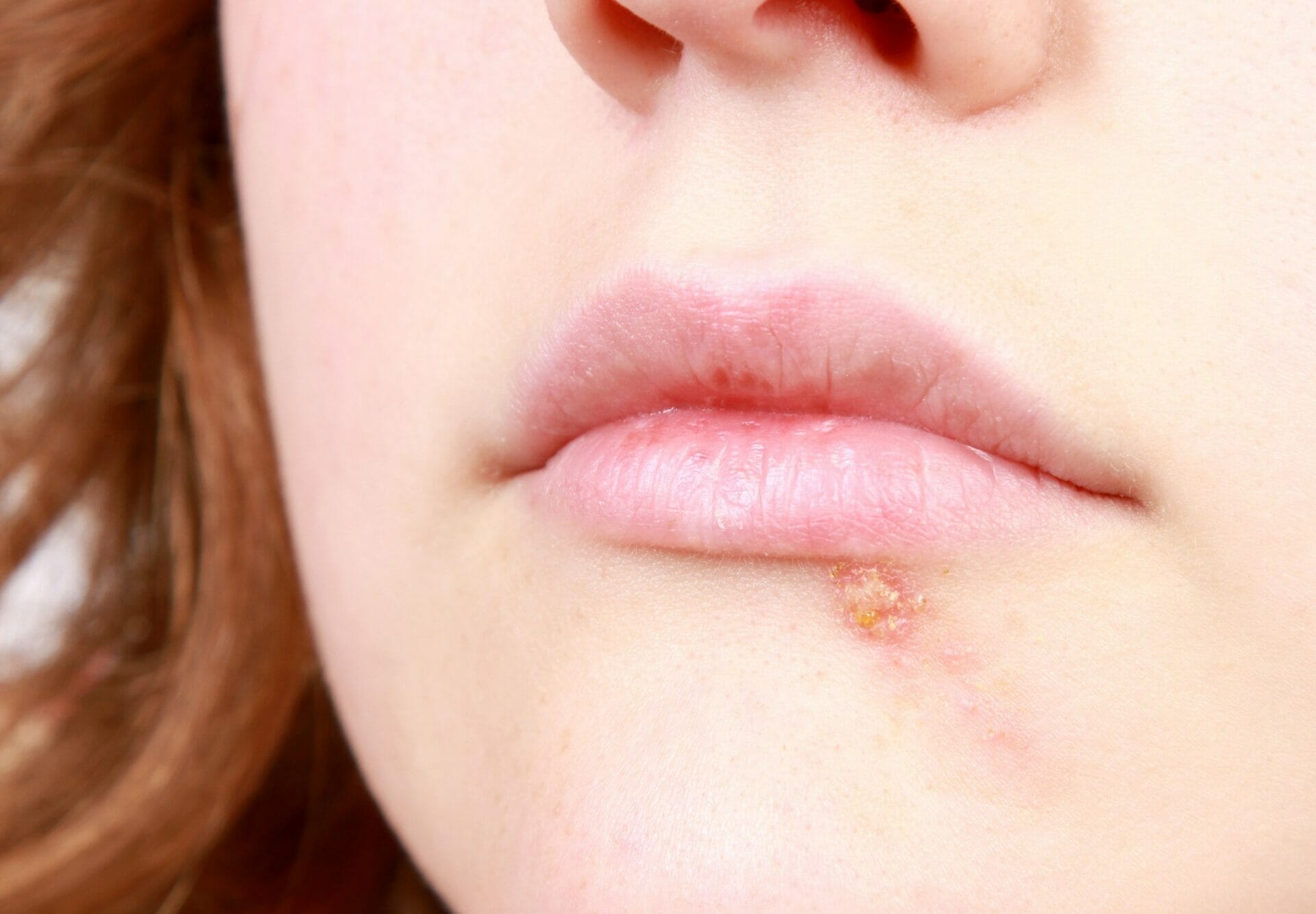
Cold sores are a pesky and recurring problem for many patients. Cold sores are caused by Herpes Simple Virus 1 (HSV-1). Many people harbour HSV-1, but many will never experience a single cold sore in their lifetime. So, why do some people get cold sores while others don't?
Well, HSV-1 remains dormant in the body until one or more factors cause a decline in immune function. When HSV-1 emerges from dormancy, you develop cold sores around the lips. For many people with HSV-1, the virus will never come out of it's dormant state. So, the take home is to not feel self-conscious if you suffer from cold sores. For starters, you are not alone. Additionally, there are many people with HSV-1 whom, for a number of reasons, will never develop a Cold Sore.
Let's start by helping you to identify cold sore onset. Then we'll discuss 5 things that can help you minimize the likelihood of getting them or help to limit symptoms and speed recovery in the event that you do.
Cold sore symptoms precede the actual appearance of a lesion. Usually, someone will feel a tingling or burning/stinging sensation around the border of their upper or lower lip days before the appearance of a sore. This is the most effective time for palliative treatment to speed recovery and minimize discomfort.
1-2 days later, you'll notice elevated red areas that eventually fill with fluid and develop into blisters. These blisters then burst, forming a crust.
You may develop a single sore, or multiple sores around a central area. The stages of cold sore development, from early sensations to the healing of a crusted blister can last up to 2 weeks. In some severe cases, the full course of outbreak can last almost 4 weeks before full healing is reached.
Make sure your immune system is functioning at top gear as this is the best way to prevent dormant HSV-1 from becoming active. Get a good sleep every night. Make sure you are eating a good diet chalk-full of whole foods (vitamin C is a big deal for immune function). Consider immune-boosters like Garlic Extract and Ginseng. Probiotics can prove helpful, too.
Try to manage stress (this is often easier said than done!). Get out in front of deadlines. Try to include relaxation and decompression periods within your days. Make sure you are giving yourself lots of restful sleep where possible.
If you do develop a cold sore outbreak, consider the following treatments to speed recovery and minimize pain and soreness.
The most common over-the-counter Docosanol-containing ointment or treatment of active cold sores is Abreva. This 10% Docosanol cream can help to relieve pain and speed up crusting of the sore(s). Make sure to avoid applying any ointments or creams with your fingers to limit spread.
These medications include Valtrex and Zovirax and can help to fight HSV-1 to speed recovery and resolution of sores. The systemic version of these medications are superior to topically applied creams. For individuals who develop cold sores frequently, recurrent use of systemic antivirals is not advisable. Prevention through boosting immune function may provide a more preferable approach.
There is some controversial evidence that laser dentistry can speed recovery from, and limit spread of, cold sores. Some groups have found the efficacy of laser treatment to be superior to Acyclovir (Anti-viral) creams.
Dental laser therapy may disrupt HSV-1 activity, improve collagen synthesis for healing of the sores, and minimize nerve pain associated with pesky cold sores.
Cold sores are caused by HSV-1, and this virus exists in the majority of the population. However, for a number of reasons, the dormant virus never becomes active in a large percentage or people harbouring HSV-1. This is the reason why some people with HSV-1 experience regular sore recurrences while others do not.
The best approach to dealing with recurrent Cold Sores is to keep your immune system running at peak performance. You can do this with adequate diet, rest, exercise and by managing stress. If sores do develop, look out for early signs and symptoms as proactive treatment can best curtail spread and speed a comfortable recovery.
Our Kitchener Dental Office is conveniently located in Downtown Kitchener and we are a short drive away for families in Waterloo, Breslau & St. Jacobs. Our central location means we truly offer family dentistry near you!
This article is meant to promote understanding of and knowledge about general oral health topics. It is not intended to be a substitute for professional advice, diagnosis or treatment. Accordingly, always seek the advice of your Kitchener Dentist or other healthcare provider regarding a dental condition or treatment.
Services
Routine Dentistry & Tooth Repair
Oral Surgery & Tooth Removal
Prosthetic Dentistry & Tooth Replacement
Protective/Preventive Services
Teeth Whitening
Schedule an Appointment Now
